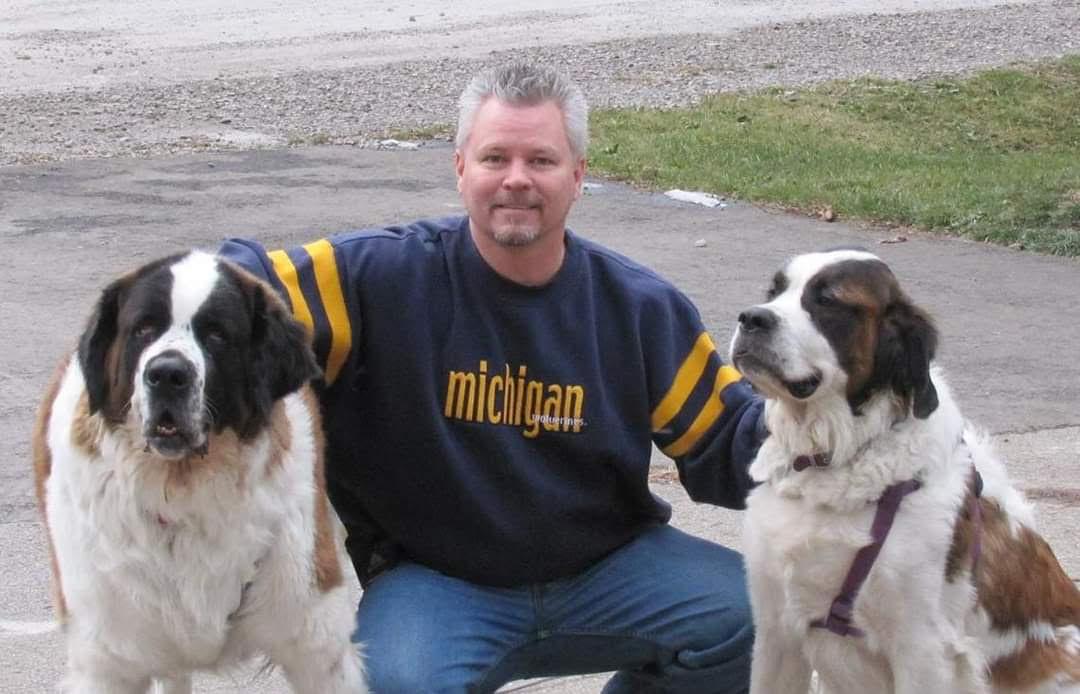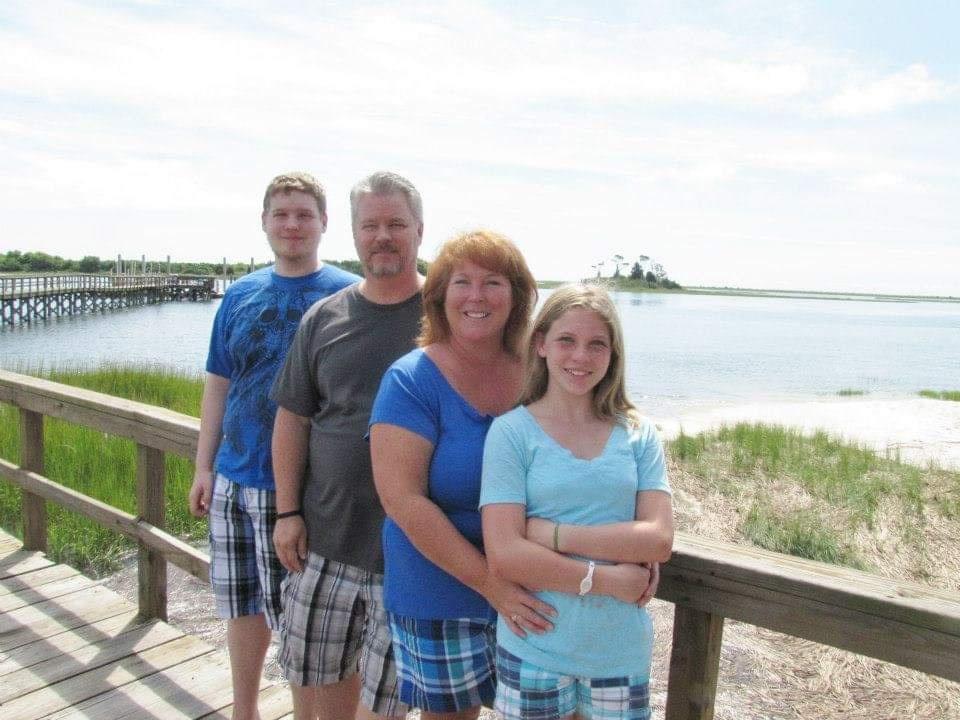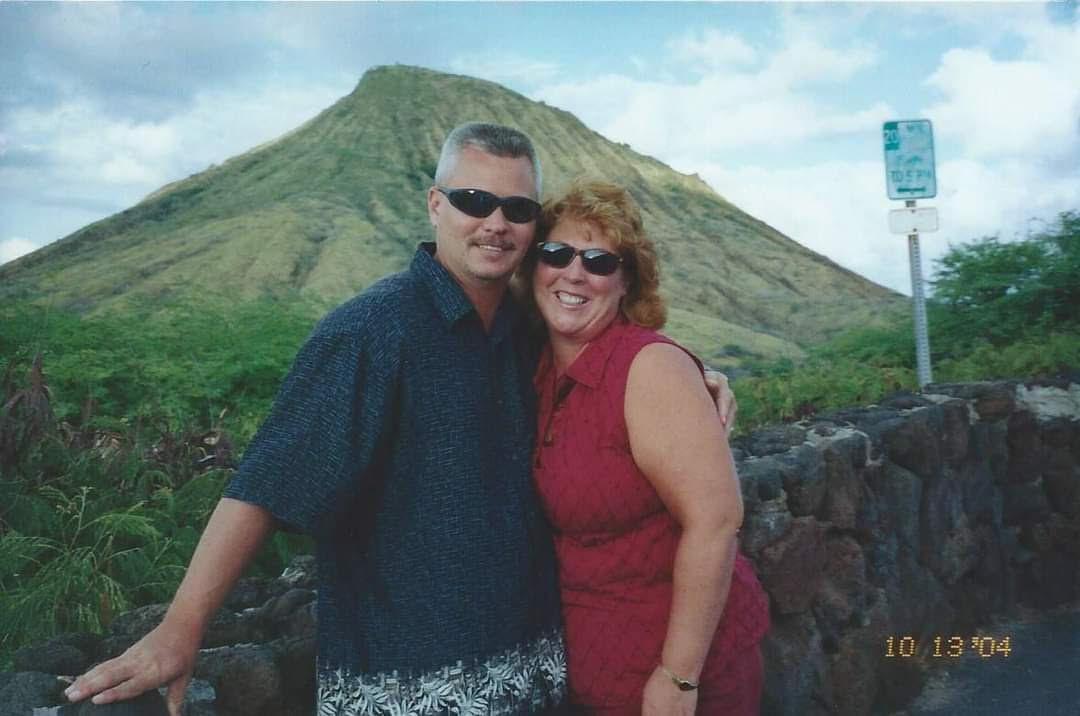
7 minute read
We ' ve Walked in Your Shoes
peer connect
Become A Mentor As a survivor or caregiver, you know better than anyone else what it is like to go through treatment, how to deal with side effects, and how to manage all the emotions— highs and lows—that come with a melanoma diagnosis. Share your experience and expertise by volunteering as a Peer Connect mentor to another survivor or caregiver.
Request a Mentor If you have recently been diagnosed with melanoma, you may be experiencing a wide range of feelings and emotions. Our goal is to provide support to help ease the anxieties, stresses, and fears that may arise during your melanoma journey.
In this program, you are matched with a trained, volunteer peer mentor who has “ walked in your shoes ” as a melanoma patient — ideally, someone who was diagnosed with the same stage of melanoma. The peer mentor provides one-on-one support, a listening ear, and guidance in a safe, nonjudgmental, and confidential environment.
our peer to peer support program
walking to conquer melanoma

/ WRITTEN BY MARA KLECKER
Even when the pandemic forced the KDB Melanoma 5k Walk / Run to go virtual in 2020 , Mike ’ s Miracle Workers donned their red shirts and laced up their shoes to walk 3 . 1 miles in memory of Mike Smith , who died of melanoma in 2015 at the age of 51 .
Several members of the team kicked off that year ’ s walk in his wife Rhonda Smith ’ s front yard in Wayne , Michigan , while other team members walked in their own neighborhoods in New York , Virginia , and California . Though the virtual format dampened some of the traditions of the annual KDB Walk – which has been held in Michigan since 2006 and has raised more than $ 674 , 000 for AIM at Melanoma – it also allowed people to participate from all over the country . “ I think my husband would be very proud , ” Rhonda said of her team , which has raised more than $ 10 , 000 for AIM since joining the walk in 2017 . Mike and Rhonda were married for 26 years . They first met at a high school prom , but each had brought a different date . Five years later , they were set up on a date by their parents . “ We were together from then on , Mike was a loving and involved father to his two children . He coached his son ’ s baseball team and was the dad who yelled encouragement and advice ( often louder than the coach ) from the sidelines of his daughter ’ s volleyball games . “ He was a happy - go - lucky guy , always in a good mood , ” Rhonda remembers . He had a wicked sense of humor and loved a good game of poker . Mike was also dedicated to service . After serving in the military , he became a police officer and eventually retired as a sergeant . His philosophy in life was to live for the day . He often said life was too short to waste time worrying . He was first diagnosed with melanoma in 2008 after a mole on his stomach turned black and started itching . Rhonda encouraged him to go to the dermatologist , who removed it the same day and scheduled him for checkups every six months . Three years after having that mole removed , Mike found a lump in his groin . Doctors removed the tumor and lymph nodes from his right leg , but about three months later , scans showed the cancer had spread throughout his body . For the next four years , Mike underwent targeted therapies and immunotherapies and participated in two clinical trials , all of which caused severe side effects . Still , Mike worked hard to hide his disease and continued working until the last year of his life . “ Up until the very end , a lot of people didn ’ t even know he had melanoma , ” Rhonda said . “ He didn ’ t want people to feel they needed to do anything for him , even though he would do anything for anyone else .

Mike and Rhonda
’ s daughter was a freshman in high school when Mike passed away . She wanted to honor his love and support of her volleyball team , so she and Rhonda worked with the coach to create the “ Coach Dad Scholarship ” to provide the recipients with funds for equipment or further education . By 2017 , Rhonda was looking for more ways she could fundraise for melanoma awareness and research . “ Mike was such a giving person , ” Rhonda said . “ I wanted to do what I could to help keep his memory alive . I thought if I could also do something to help prevent any other family from going through such a loss , then that was my purpose . That ’ s when Rhonda first found out about the KDB Walk . Within a few months of reading about the fundraising event , Rhonda had assembled the “ Mike ’ s Miracle Workers ” team , raised more than $ 1 , 500 and launched a tradition for those who loved Mike . The following year , she worked closely with her core team and raised more than $ 2 , 000 . and In 2019 , they pulled in more than $ 3 , 800 from three fundraisers , including a car wash and a cabaret performance . They raised another $ 2 , 300 in 2020 and more than $ 1 , 100 in 2021 . “ Everyone really came together , Mike
’ s Miracle Workers was a way those people could honor the man who gave so much of himself . In 2019 , Tricia Edwards , the founder of the KDB Walk , asked Rhonda to be on the event ’ s planning committee . Rhonda ’ s answer was an easy yes . “ It is such a moving event where you see so many people going through the same thing , ” Rhonda said . She now counts many of the other organizers of the walk among her closest friends . “ I ’ m so glad Tricia created this , ” she said . “ It ’ s sad to think about what we do all have in common . So many people do not understand what a beast melanoma can be – it ’ s what brought us all together . But so much good has come out of such a terrible thing .

news

On January 26, 2022, Immunocore announced that the U.S. Food and Drug Administration (FDA) has approved KIMMTRAK (tebentafusp-tebn) for the treatment of HLA-A*02:01-positive adult patients with unresectable or metastatic Uveal Melanoma. KIMMTRAK is the first and only FDA approved therapy for the treatment of unresectable or metastatic uveal melanoma (mUM). FDA approval was based on the results of a phase 3 clinical trial in which KIMMTRAK showed statistically and clinically meaningful overall survival benefit for mUM patients. A total of 378 previously untreated patients were randomly assigned to either the KIMMTRAK (tebentafusp) group (252 patients) or the control group (126 patients). The control group received single-agent treatment with pembrolizumab (82% of control patients), ipilimumab (13%), or dacarbazine (6%). Overall survival (OS) at one year was 73% in the tebentafusp group and 59% in the control group. Uveal melanoma is the most common intraocular cancer in adults, and about 50% of people with uveal melanoma will develop metastases. The prognosis for mUM patients is very poor, with the median overall survival after diagnosis being just one year. Before today, there were no approved systemic treatment options for mUM patients.
KIMMTRAK is also the first T cell receptor therapeutic to receive regulatory approval.
“KIMMTRAK offers hope for patients and families suffering from a devastating disease. Now, with KIMMTRAK’s approval, it’s the first time we can tell our mUM patients and families that there is a systemic treatment available that has been shown to extend survival.





